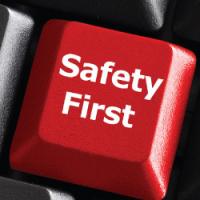- Posts: 350
- Thank you received: 11
UV Light Eye Damage
- Safety Toolbox Talk Webmaster
-
 Topic Author
Topic Author - Offline
- Administrator
-

July is UV Safety Month and the American Academy of Ophthalmology reminds Americans of the importance of protecting their eyes from the sun’s harmful rays by wearing sunglasses and wide-brimmed hats. One of the greatest threats to your eyes is invisible UV light. Long-term exposure to invisible ultraviolet radiation can damage our eyes and lead to vision loss. Everyone is at risk, especially children.
Like your skin, your eyes never recover from UV exposure. Studies show that exposure to bright sunlight may increase the risk of developing cataracts and age-related macular degeneration, both leading causes of vision loss among older adults. UV exposure, wind, and dust can also cause apterygial, benign growths on the eye’s surface. The more exposure to bright light, the greater the chance of developing these eye conditions.
In addition to the damage caused by a lifetime of exposure to bright sun, you need to protect your eyes from acute damage caused by outings on very bright days. Excessive exposure to ultraviolet light reflected off sand, snow, water, or pavement can damage the cornea, the eye’s surface. Such exposure can even occur if the sky is overcast and cloudy.
“Sun damage to eyes can occur anytime during the year, not just in the summertime,” said Richard Bensinger, MD, a comprehensive ophthalmologist in Seattle, Wash. “Although July is designated as UV Safety Month, you should protect your eyes from damage all year long.”
Generally, UV light is at the greatest level at midday (10:00 a.m. to 2:00 p.m.), but you need to protect your eyes whenever you’re outside for a prolonged period, even when it’s gray and overcast. Your eyes can be harmed by UV light sources other than the sun, such as welding lamps or tanning lights. So remember to wear eye protection when using these sources of invisible, high-energy UV rays.
Please Log in or Create an account to join the conversation.
